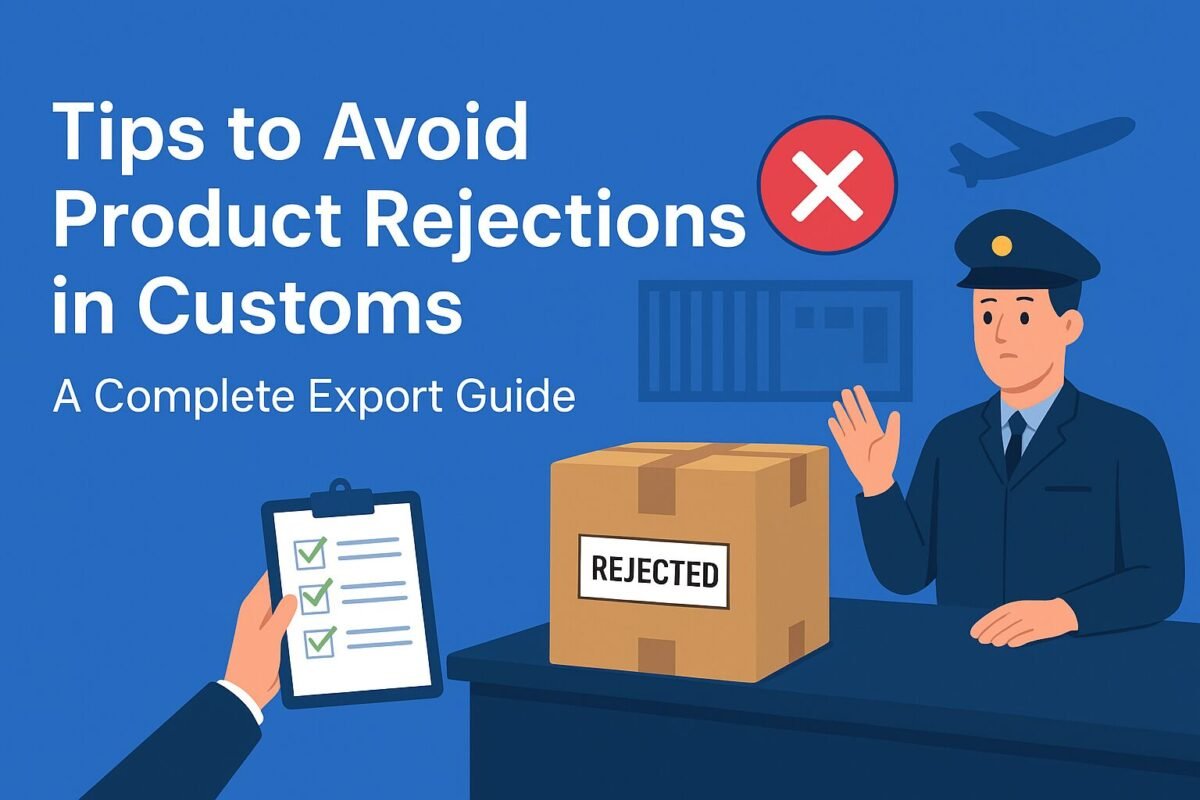
Avoid Product Rejections in Customs: A Complete Exporter’s Guide
.Exporting goods across borders can be highly profitable, but it comes with strict regulations. One of the biggest challenges exporters face is customs rejection, which can lead to costly delays, penalties, or even loss of entire shipments. By following the right tips to avoid product rejections in customs, businesses can ensure smooth trade operations and protect their reputation in global markets. This guide will explain why products are rejected, the most common mistakes exporters make, and practical strategies to prevent customs clearance issues.
Why Do Products Avoid Customs Rejections?
1. Non-Compliance with Import Regulations
Every country has its own import requirements, including safety standards, labeling laws, and restricted items. Failing to comply leads to automatic rejection.
2. Incomplete or Incorrect Documentation
Missing invoices, inaccurate HS codes, or mismatched shipping details often trigger customs delays or rejections.
3. Poor Packaging and Labeling
Improper labeling of ingredients, origin, or expiry dates makes products non-compliant. Packaging that doesn’t meet international safety standards can also be rejected.
4. Restricted or Prohibited Items
Certain products, like pharmaceuticals, chemicals, and animal-based goods, need special licenses. Without them, clearance is impossible.
5. Failure to Meet Health and Safety Standards
Food, cosmetics, and medical products undergo strict inspections. If they don’t meet hygiene or safety requirements, they are denied entry.
Tips to Avoid Product Rejections in Customs
✅ 1. Research Country-Specific Import Regulations
Before exporting, study the target country’s customs rules, product restrictions, and labeling requirements. What works in one country may not be valid in another.
✅ 2. Prepare Accurate Documentation for Customs Clearance
Avoid Product Rejections in Customs:
- Commercial invoice
- Packing list
- Certificate of origin
- Import/export licenses
- HS (Harmonized System) codes
Double-check every detail to prevent delays.
✅ 3. Ensure Proper Labeling & Packaging to Avoid Customs Issues
- Display product origin clearly
- Add manufacturing and expiry dates
- Use the target country’s language (if required)
- Follow international packaging standards (e.g., ISPM 15 for wooden pallets)
✅ 4. Work with Licensed Freight Forwarders & Customs Brokers
A reliable logistics partner can guide you through regulations, paperwork, and compliance checks. This minimizes risks of rejection.
✅ 5. Stay Updated with Trade Agreements & Tariffs
International trade laws change frequently. Stay informed about free trade agreements (FTAs), tariff changes, and product restrictions to avoid last-minute surprises.
✅ 6. Conduct Pre-Shipment Inspections for Compliance
Have your goods inspected by accredited agencies before shipping. This ensures compliance with quality and safety standards, reducing the risk of rejection.
✅ 7. Train Your Export Team on Avoid Product Rejections in Customs
Employees should understand customs procedures, compliance requirements, and documentation processes to prevent mistakes.
Benefits of Avoiding Product Rejections in Customs
- Avoid Product Rejections in Customs
- Ignoring product testing or certifications
- Providing vague product descriptions
- Overlooking restricted substances or ingredients
- Relying on outdated regulations
How to Avoid Product Rejections in Customs
- Documentation Mistakes That Cause Customs Rejections
- Implement strong quality control systems
- Steps Exporters Can Take to Avoid Customs Rejections
- Use digital tools for trade compliance tracking
- Seek expert legal advice for complex markets
Conclusion: How to Successfully Avoid Product Rejections in Customs
Customs rejection is one of the biggest obstacles exporters face, but it’s avoidable with the right planning. By following these tips to avoid product rejections in customs, businesses can reduce risks, save costs, and ensure smooth global trade.
Instead of treating compliance as a burden, view it as a strategic investment in your brand’s reliability and growth. Well-prepared exporters not only prevent delays but also build trust with international partners and customers.









